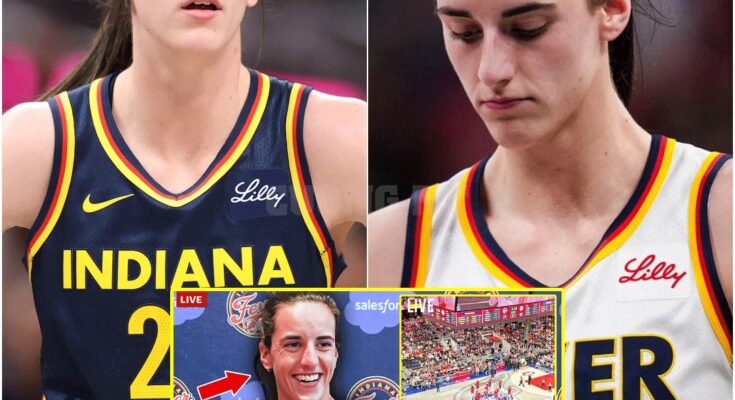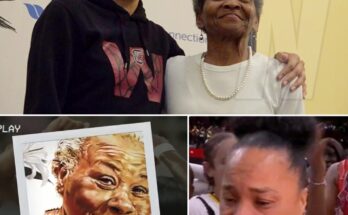Caitlin Clark’s impact on the WNBA has been nothing short of revolutionary. From her record-breaking college career to instantly becoming the face of the league, Clark’s presence has generated sold-out arenas, skyrocketed ticket prices, and thrust women’s basketball into the national spotlight. But behind the explosion in attention lies a storm of resistance, mismanagement, and dangerous neglect that could derail the very momentum she’s created.

Clark’s recent injury—a quad issue sidelining her during one of the season’s most anticipated matchups—revealed just how economically vital she is. Before news broke of her absence from the Chicago game against Angel Reese’s team, tickets were selling for $76. Within hours of the announcement, prices dropped to $25. Some Fever games have seen ticket prices plunge from $41 to just $3 after she was ruled out. That’s not just influence. That’s economic gravity.
Dubbed “Clarkonomics,” her effect reaches far beyond the court. Merchandise sales, especially jerseys, have surged over 1,100%. Teams like the Indiana Fever went from playing in front of half-empty arenas to hosting sellout crowds of 17,000+. Their phone lines lit up with over 6,000 calls within days of Clark declaring for the WNBA Draft. Even their mascot Freddy Fever saw a 150% increase in appearance requests. Simply put, Clark didn’t just boost the WNBA—she made it mainstream.
But the league’s response has been baffling. Instead of protecting their most valuable player, Clark is being battered night after night. The physicality she’s endured on the court—often ignored by referees—has raised serious questions. She draws hard fouls, elbow checks, and cheap shots with minimal whistles. It’s as if the league wants the benefit of her fame without the responsibility of safeguarding it. This isn’t “earning your stripes”—it’s reckless.
Meanwhile, league leadership fumbles the narrative. WNBA Commissioner Cathy Engelbert recently published a self-congratulatory article taking credit for the league’s surge in popularity. Clark’s name is barely mentioned. The reality? Engelbert didn’t drop 40 points in the Final Four or ignite a surge in season ticket sales. Clark did. And yet the player who turned the Fever into the hottest ticket in sports is treated like a disruptive intern instead of the generational star she is.
The resentment among some players is equally troubling. Thinly veiled comments about “earning respect” and passive-aggressive shade from veterans reveal a deeper discomfort. But instead of embracing the new spotlight Clark brings, a gatekeeping culture threatens to repel the very audiences she’s attracted. This is a once-in-a-generation moment. The league should be lifting all boats, not trying to capsize the one carrying the league’s future.
Even when she’s not playing, Clark commands headlines. Her bench presence still boosts TV ratings, drives social media chatter, and fuels debates on sports talk shows. She’s compared to Steph Curry, Serena Williams, and even LeBron James—not just for talent, but for transcending the sport. She’s a cultural moment. A marketing dream. A rookie whose off-court presence is more valuable than most players’ best performances.
The WNBA’s numbers prove it. Viewership records have been shattered. National broadcasts are featuring games previously ignored. Sponsors are flooding in. And yet, Clark continues to be roughed up without repercussions, disrespected by peers, and sidelined from conversations she has every right to lead.
The truth is, this isn’t just about basketball. It’s about visibility, investment, and legacy. Caitlin Clark is the main event, the reason casual fans now debate pick-and-roll strategy and why some men who never watched a WNBA game now know every Fever stat line. The league didn’t engineer this moment. It got lucky. But if it doesn’t act fast to protect its golden goose, that luck might run out.
Clark is not asking for special treatment. She’s asking for fairness—basic protections every superstar receives in any professional sport. She’s giving the league everything: attention, relevance, revenue. The least they can do is call a foul when she gets slammed.
This isn’t a moment to humble a rookie. It’s a moment to build a dynasty. Caitlin Clark didn’t just join the WNBA—she reinvented it. The only question left is whether the league is smart enough to realize it and brave enough to ride the wave.


